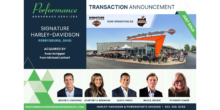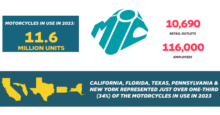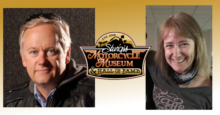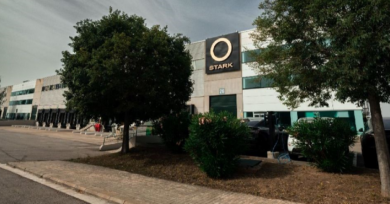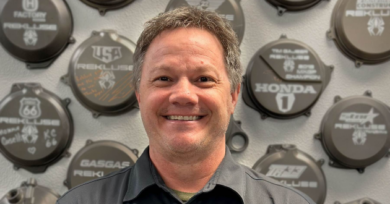Jun. 2, 2008 – GE Money sees long-term industry growth
GE Money representatives sat down with Powersports Business in the days following the company’s departure from the marine industry to talk about the finance company’s future in the powersports arena.
GE Money had earlier announced it would discontinue its consumer finance programs in the marine market. The change, however, does not affect the powersports side of its business.
“All of our powersports OEM programs that have marine as a component, like Yamaha and BRP, those powersports OEM programs remain unchanged,” said David Smith, GE Money’s senior powersports marketing manager.
Smith and Jeff Karls, vice president of marketing for GE Money, discussed the company’s decision to leave the traditional marine market, the future for their powersports business and other issues impacting powersports dealers in the Q&A.
PSB: Can you discuss the company’s future in the powersports market, especially in light of the decision regarding the consumer finance programs in the marine market?
Smith: GE Money is 100 percent committed to powersports. We’re committed to the industry, and we’re going to be in it for the long haul.
Karls: We constantly evaluate all of these markets. We look at the returns we’re making. We look at where we think we can grow and where we think we can’t and of course a lot is due to the competitors we’re up against in any given market. When we looked at RV/marine and those factors, it just didn’t look as attractive going forward. We like the powersports business and see opportunity there and strong, long-term growth. We’re pursuing new deals and investing our resources in this market. We’re obviously trying to make sure our portfolios remain strong with some of the credit quality things we’re doing. Will we look at it continuously over the course of time? Sure. We do that with everything. But right now, we think that’s a strong piece of business for us. It fits our model. You know it’s not the $50,000 boats or $100,000 RVs, it’s a $10,000 PWC, which is more like a motorcycle. We know how to process it very well.
PSB: What have been the reactions by OEMs to changing credit standards for consumer loans?
Smith: The different OEMs are reacting differently to the current environment because each one has its own unique situation and goals but many, including the OEMs we support, are working with us to put consumers in a strong equity position when they buy a unit. A long-term approach enables consumers to be in a good position when they want to come back in two years and buy a different unit. So they’re not upside-down when they come back for that second unit. So when they’re making their payments, they’re actually paying off the principal of the unit.
Karls: A lot of the promotions OEMs are choosing right now have a faster pay down on the equity whereas in the past they would be a little more liberal and payments would be smaller. It just puts consumers in a more conservative position in today’s market.
PSB: Harley-Davidson Financial Services recently tightened its retail credit standards. Do you think we’re going to see more of that in the powersports market?
Karls: I think every lender is going to have to look at their own client base. They’re all a little different as to the customer that comes in the door relative to what type of machine they’re selling. I don’t think we can predict whether it’s going to get tighter or not. We’ve seen competitors taking different moves, including ourselves, to tighten up, to face the reality of what we have today. Consumers are more stressed, so you have to respond to that. Fortunately, we’ve always had strong underwriting standards, and that has helped us manage through this cycle.
PSB: Why are lenders tightening standards when the Fed keeps cutting back interest loan rates?
Karls: It helps when rates are lower. It makes it more affordable for consumers. What it doesn’t necessarily do is change the default levels we’re seeing or the stress levels that consumers are under. Gas prices are higher. Their mortgage may be going up. Food costs are going up. What we’re seeing are consumers who we would underwrite maybe two years ago at a credit score aren’t performing the same today as they were. There’s just more stress on them, and we’re trying to adjust to that reality. I think you see that in a lot of other lenders. We’re certainly seeing a lot of other lenders making the same type of adjustments that we’re doing.
PSB: GE Money started a dealer advisory group about 18 months ago. What’s been the biggest revelations from that group?
Smith: We have 15 dealerships represented, primarily F&I managers. The reason we choose F&I managers as opposed to the dealers is because the F&I managers are closest to our processes and our products, so they give us the best, most actionable feedback. The GE Money Powersports Advisory Board has significantly influenced our processes and products in the marketplace. We gained valuable insight into the different needs that different segments of our dealer base have. In addition it has been an important reminder that communication is a two-way street, that listening to our customers is one of the most important investments we can make in providing unique and competitive value to our customers. A great example of this AdvanceDesk. We’ve made several enhancements to the AdvanceDesk tool, online application processing as a direct result of some of the things that came out of our advisory board.
Karls: It’s just knowing your dealers better, what’s working and what’s not. We use them as a sounding board. We’re working on some online training now. We’re bouncing that off our dealer advisory board, so we get it right before we roll it out. Obviously when we roll it out, we’ll get more feedback. Their guidance helps us get it right the first time.
PSB: What actions are critical on the part of dealers to keep relationships with lenders healthy?
Smith: Executional excellence is the key. Dealers need to be diligent about consumer privacy, understanding lender requirements and calling lenders if they have any questions. That’s one of the things that we found causes trouble is when dealers don’t understand or they have a question about something and they don’t call to clarify. The more they call when they have questions, the better off we all are: the consumer, the dealer, the lender.
Karls: I think the other thing that we look for is a balanced relationship with our dealers as to the quality of consumer applications they’re sending and the volume of applications they’re sending. We’re looking for a balanced relationship there. When it goes one way or another, it usually doesn’t work that well, especially when we’re getting a lot of lower quality paper or a higher proportion. We’re looking for a balanced relationship with our dealers and that’s important to us.

